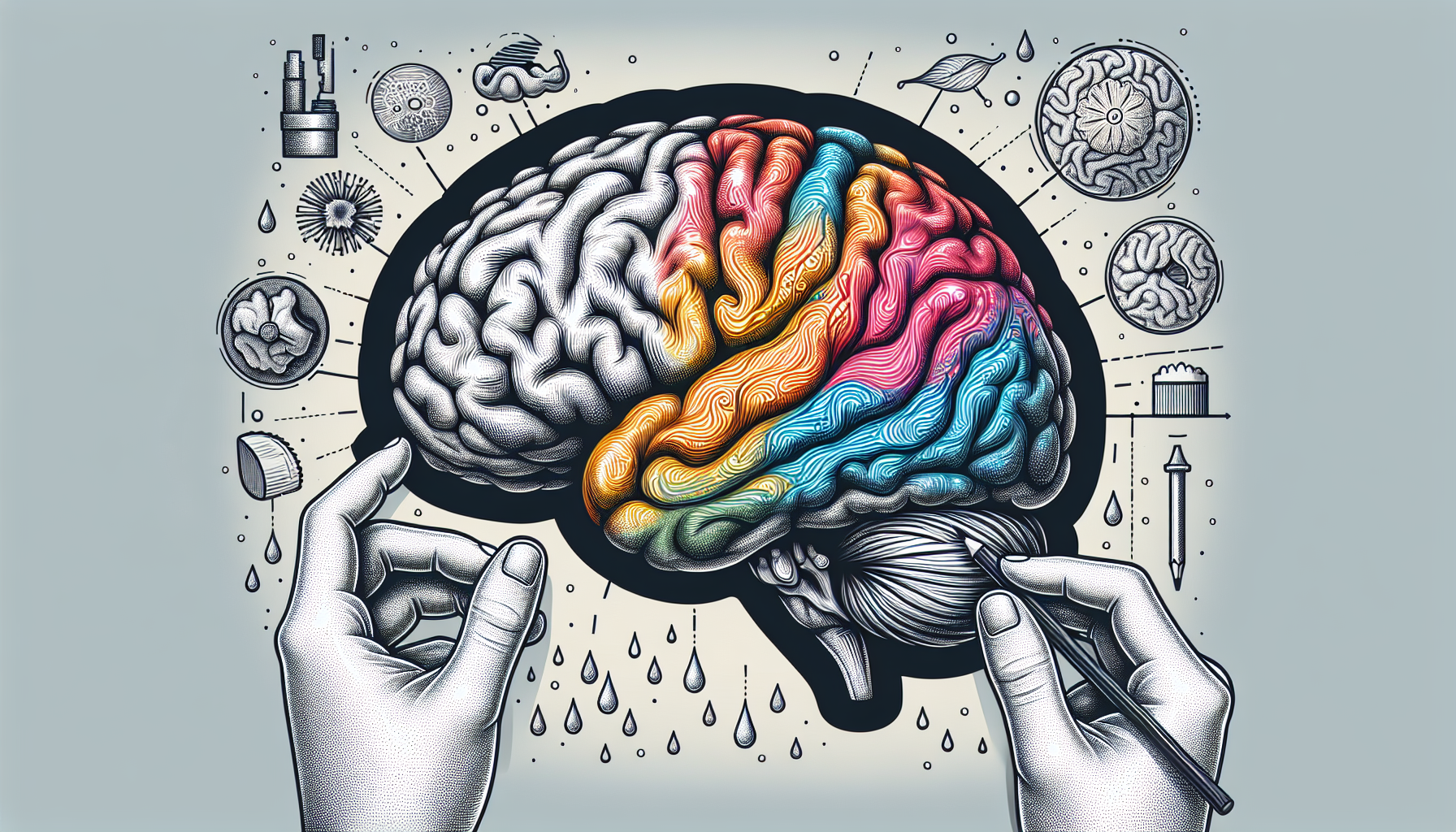Stress is an inevitable part of life. It is the body’s reaction to any change that requires an adjustment or response. The body reacts to these changes with physical, mental, and emotional responses. While stress can be positive, keeping us alert and ready to avoid danger, chronic stress can have significant negative implications on brain health, affecting both cognitive functioning and physical well-being.
Understanding the Stress Response and Its Impact on the Brain
The human brain has a remarkable ability to react to stress. In the face of immediate danger, the brain’s hypothalamus prompts an adrenal gland response, releasing a surge of hormones such as adrenaline and cortisol. This "fight or flight" response is crucial for survival, yet when activated continuously by the stress of modern life, it can become harmful.
Chronic stress can disrupt synapse regulation, leading to a loss of sociability and avoidant behavior. This suggests that the brain’s structure and function are modifiable in the presence of sustained stress, which can lead to altered behavioral outcomes. Understanding Neuroplasticity and Brain Health provides an in-depth look at how the brain can adapt and change in response to various factors, including stress.
Cognitive Effects of Stress
Stress can interfere with cognitive processes such as memory and learning. When cortisol is released in response to stress, it can impede the function of the hippocampus, the brain’s primary memory center. Over time, this can lead to memory loss and difficulties with concentration and decision-making. The article on How Diet Affects Your Cognitive Function offers insights into maintaining cognitive health through nutrition, which can be a valuable aspect of managing stress.
Emotional and Psychological Consequences
Stressful experiences can also lead to emotional and psychological strain. It is tied to mental health conditions like depression and anxiety. Chronic stress may affect the neurotransmitters associated with mood regulation, such as serotonin and dopamine, leading to feelings of sadness and a lack of pleasure or motivation.
Stress and Brain Health Across Life Stages
Brain health and its response to stress can vary significantly as we age. The article on Brain Health Across Different Life Stages provides a comprehensive look at how different stages of life affect brain health, including the unique stressors and neuroprotective strategies relevant to each phase.
Strategies to Mitigate the Effects of Stress on Brain Health
To combat the negative effects of stress on the brain, it’s crucial to engage in strategies that promote resilience and recovery.
Mindfulness and Meditation
Mindfulness and meditation have been shown to help reduce stress and improve brain health. These practices can enhance the brain’s ability to manage stress and recover from its harmful effects. The calming effect of mindfulness can alter the neural pathways in the brain, making you more resilient to stress. How Meditation and Mindfulness Improve Brain Health dives deeper into these practices and their benefits for the brain.
Exercise and Physical Activity
Physical activity is another powerful tool in managing stress. Exercise releases endorphins, which are natural mood lifters. It also helps to use up the stress hormones that can cause harm when they accumulate. For more information on the specific types of exercises that can benefit brain health, consider reading The Importance of Regular Exercise for Brain Health.
Social Support and Interaction
Social support is crucial for stress relief. Interactions with friends and loved ones can release oxytocin, a natural stress reliever. This effect is known as "tend and befriend," and it’s the opposite of the "fight or flight" response. For a deeper understanding of this phenomenon, the article Understanding the Brain Health Benefits of Social Interaction is an excellent resource.
Quality Sleep
Adequate sleep is essential for brain health. Sleep helps to consolidate memories and clear the brain of toxins. Lack of sleep can exacerbate the effects of stress on the brain. For strategies on improving sleep for brain health, refer to The Role of Sleep in Maintaining Brain Health.
Nutritional Interventions
The brain requires a variety of nutrients to function optimally. Diets rich in antioxidants, good fats, vitamins, and minerals provide energy and protect against brain diseases. Consuming certain foods can help to reduce the levels of cortisol and adrenaline in the body, thus protecting the brain from the harmful effects of stress.
External Resources for Further Reading
For more specialized information on the effects of stress and how to manage it, the following resources provide valuable insights:
- A detailed study on the effects of chronic stress on the brain: This research paper delves into the neurological impact of prolonged stress exposure.
- An exploration of the stress response and its implications for health: Harvard Health Publishing offers a comprehensive overview of how stress affects the body and mind.
- Guidelines for mindfulness-based stress reduction techniques: Mindful.org provides practical advice on incorporating mindfulness into daily life to alleviate stress.
- Strategies for improving sleep to support brain health: The National Sleep Foundation outlines best practices for sleep hygiene that can enhance brain function.
- Nutritional psychiatry: Diet and brain health: Psychiatric Times discusses the field of nutritional psychiatry and how diet can impact mental health and stress.
In conclusion, stress can have profound effects on brain health, but with the right knowledge and tools, its impact can be managed and mitigated. By incorporating strategies such as mindfulness, exercise, social support, quality sleep, and proper nutrition, individuals can promote resilience and protect their brain health against the challenges of stress.



